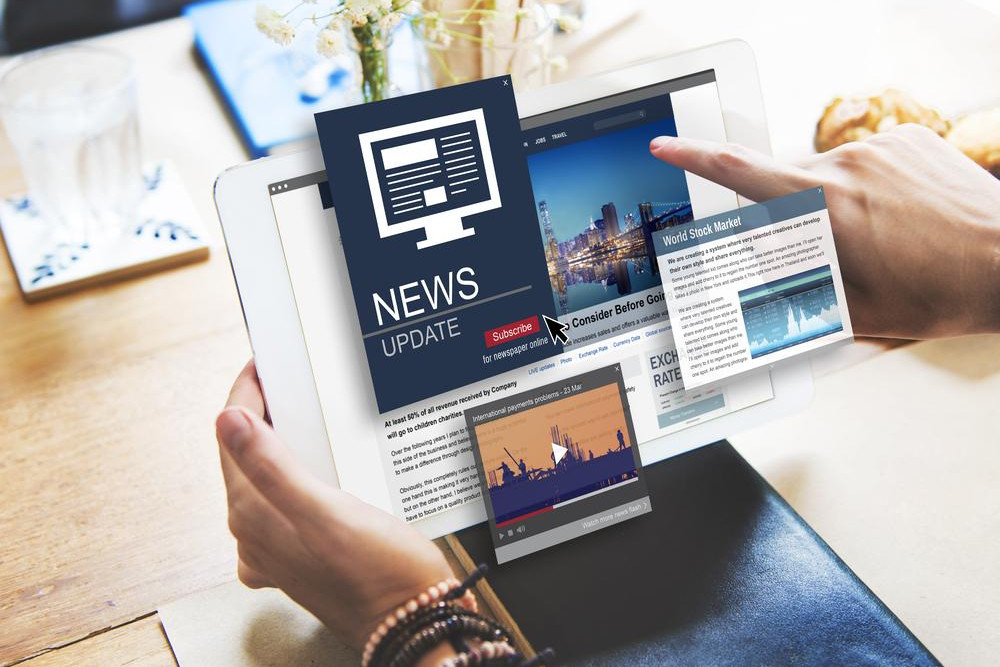General News
22 October, 2024
Weighing up the pros and cons of social media as your only news source
This is third party content.

This is third party content.
An increasing number of people opt to get their news and information from accessible, constant sources like social media rather than traditional channels such as newspapers or TV.
However, plenty of benefits and disadvantages exist for those who have decided to forgo their television or newspaper subscriptions and get their news exclusively from sites like YouTube, Facebook, and X (formerly known as Twitter).
Out with the old, in with the new
The rise of the home television set in the mid-20th century was a status symbol for many families throughout Western countries, particularly the US, UK, and Australia.
TV's mass appeal crystalised and peaked during the 1980s and 1990s, when significant chunks of these countries gathered around their TV stations, updated themselves with the news, and tuned in to watch their favorite chat shows, movies, or TV series.
TV news has largely maintained the rigid structure that proved so successful all those decades ago. Over time, the internet has meant that the news cycle has increased rapidly, and the rise of PCs and laptops in the 1990s was an early indicator that the whole industry would soon be shifting toward a 24/7 news outlet, where those platforms that could deliver instant news would ultimately rise to the top.
Being able to access news online 24/7 meant that laptops became a one-stop shop where you could access news, watch movies, and play games.
As digital platforms became more prevalent, the cost of the internet became cheaper, and the speed picked up considerably, making it a viable way for people to play games, and the emergence of high-spec gaming laptops.
Social media wasn't the only beneficiary that helped to propel the potential of digital entertainment; the best gaming laptops focussed exclusively on this growing market, prioritising the quality of GPUs and graphic displays.
Although gaming laptops have other use cases, too, the fact that they could rival the sophisticated display and expansive worlds of home console games added another positive to their capabilities.
Negatives of social media news
It's no secret that social media has issues.
Given that it is such a new disruptive technology, even now, the long-term impacts of chronic social media usage will not be fully understood for at least another decade or so.
Social media owners top the list of misinformation concerns, and herein lies the crux of the main issue that these platforms face.
Due to their sheer size and the fact that anybody can post anything without any fact-checking or source, and often with an agenda, it muddies the waters as to what news is quality and what is misleading.
Human psychology shows that people are more likely to seek out opinions from people they like or ideas they naturally relate to or have a bias toward. You're not going to sit on social media and follow a load of people you disagree with, are you?
While this is only a natural human response, it narrows the playing field of news, intensifies these points of view, and, in the long run, has been shown to shorten perspective.
Another negative is that a lot of the information online is poorly sourced, not fact-checked, and can sometimes go viral, with millions of people seeing it, before the social media platform in question is able to identify that it's misleading and flag it accordingly.
Benefits to consider
For most of us, getting news and updates online is a standard part of our day.
For certain types of news, this is fine. Sports news, for instance, is an area where social media and digital platforms have thrived. F1 news, like Daniel Ricciardo leaving the F1, is something we can read about on the train or bus on the way to work.
Prior to the internet, media was a more expensive endeavor-newspapers cost a daily fee, and often, you'd have to wait at least a day to read about the biggest news.
Social media has meant that the speed at which people receive news has increased dramatically, and its cost has diminished significantly.
Final thoughts
Balance is often a fine art that is difficult to strike in life, especially when running around between jobs, putting bread on the table, or trying to keep ourselves mentally relaxed and sharp.
News on social media can be a good way to stay connected in a much cheaper and more convenient fashion.
However, nuance and perspective are vital.
If you get all your information and news from social media, remember that you will encounter things that are invalid, false, or misleading. That's not to say this isn't the case in mainstream media, either.
However, more people are aware of press standards, the process of false reporting, and the consequences that can come with it. News on social media regularly comes from people who aren't qualified journalists and don't have to operate within the same source-based framework-treating it as opinion rather than news is crucial, and striking this balance becomes easier.
As a general rule of thumb, getting your news from one source, person, or company is usually not a dynamic that will help retain a balanced perspective of the world in the long run.